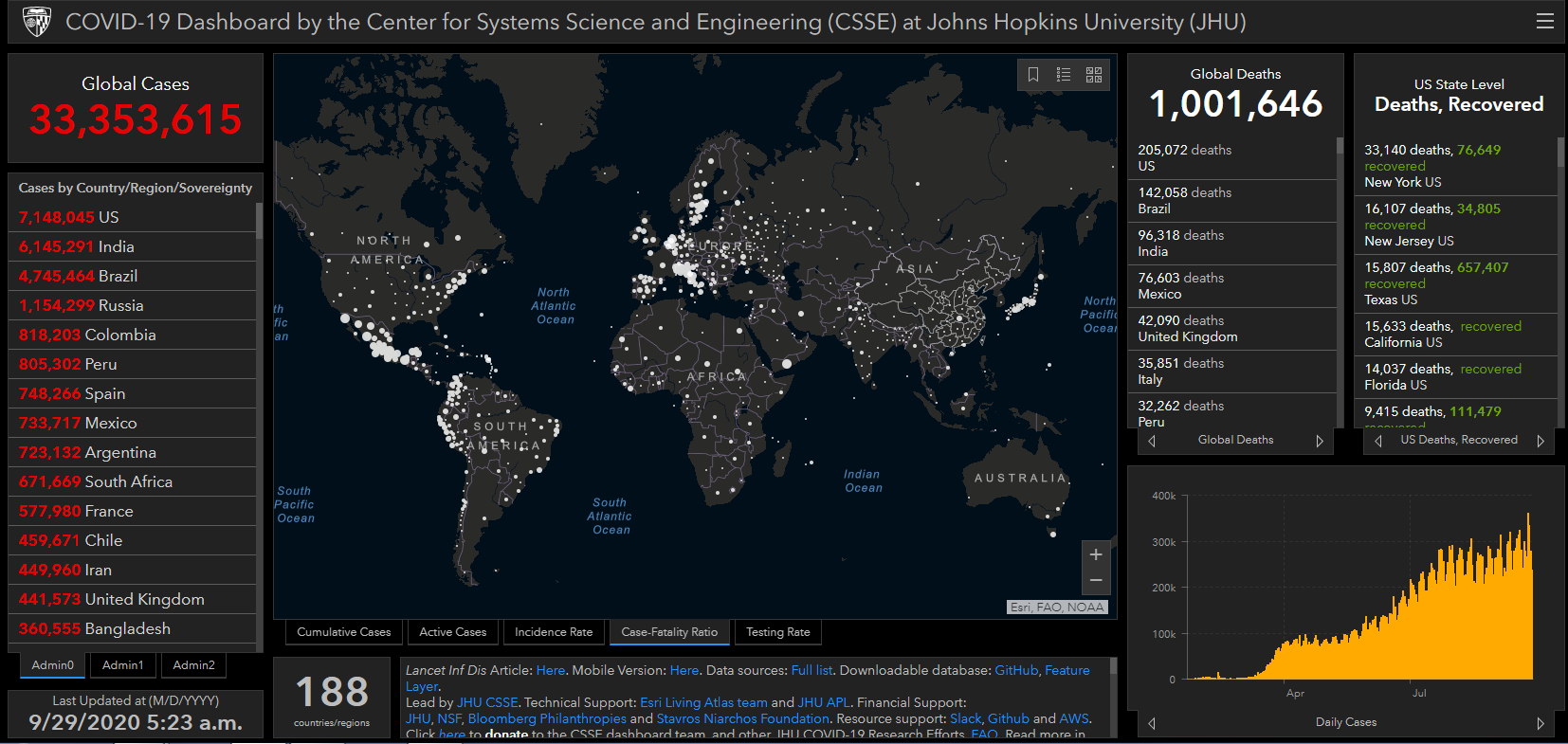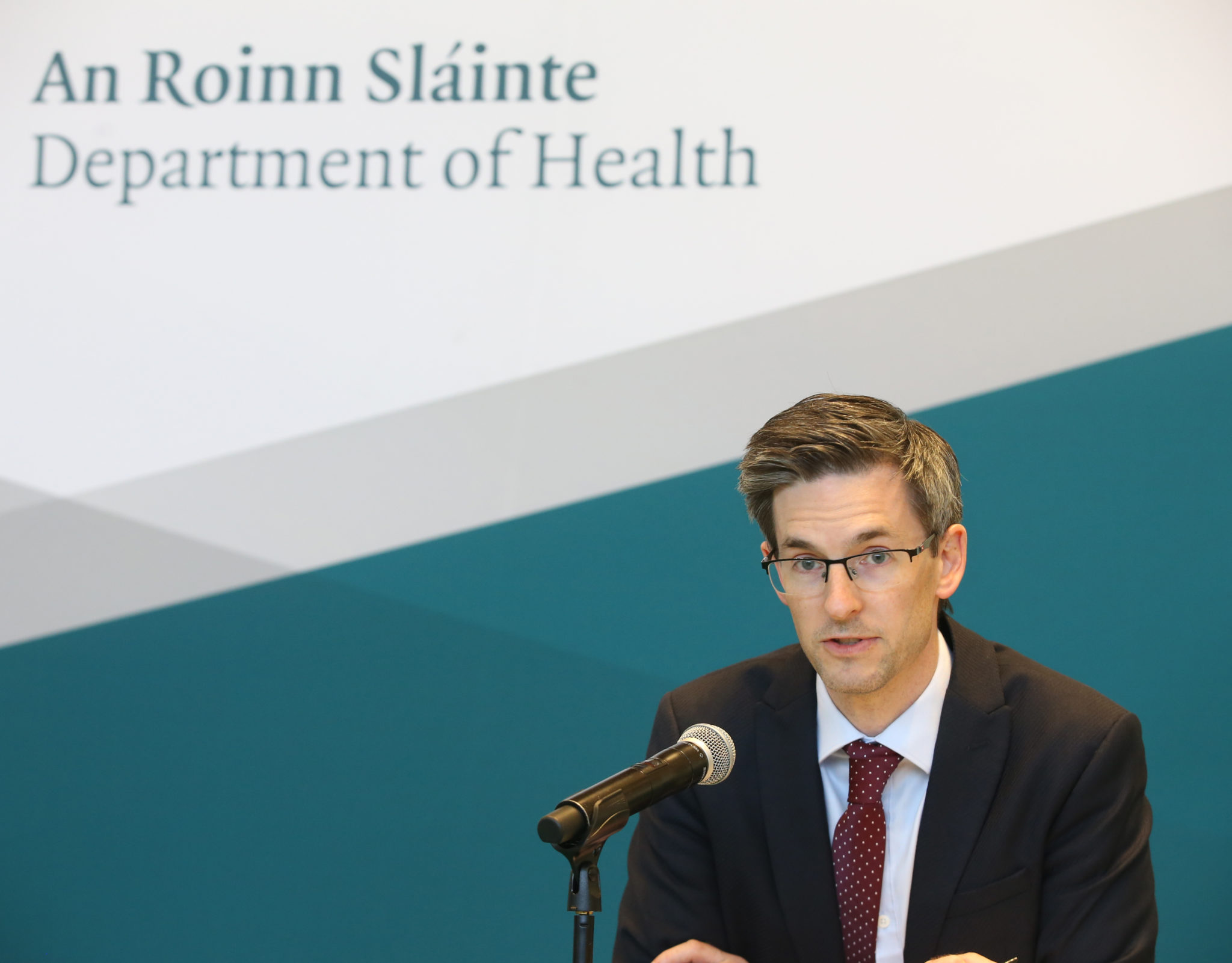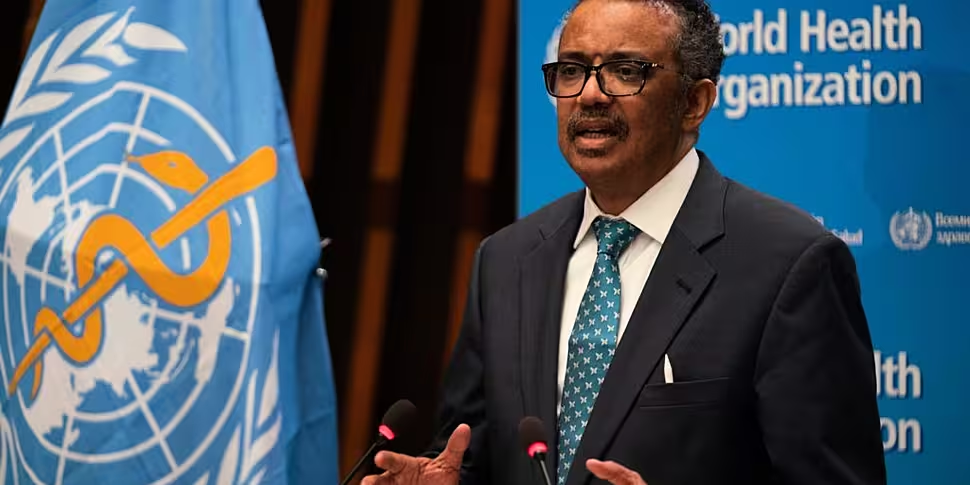The global COVID-19 death toll has reached one million, according to Johns Hopkins University.
The US accounts for over one-fifth of the deaths with 205, 072.
Brazil has been second-hardest hit with 142,058 deaths followed by India, Mexico and the UK.
More than 33 million people have been infected with the virus since the pandemic began.
 Global COVID-19 cases numbers. Image: Johns Hopkins University
Global COVID-19 cases numbers. Image: Johns Hopkins UniversityIn Ireland, the Acting Chief Medical Officer has raised concerns over "fast increasing" trends of coronavirus in a number of counties.
Dr Ronan Glynn claimed that around 70 cases in Cork over the past two weeks were linked to pubs and restaurants.
“Unfortunately, we are seeing particularly fast increasing incidences in a number of counties,” he said.
“I want to highlight Cork and Galway, which we have been doing now for about a week, but also Monaghan and Roscommon.
“Because their overall population sizes are lower, their incidences can rise very quickly with a relatively small number of cases but that said, they do stand out for the speed in which the situation is deteriorating.”
 The acting Chief Medical Officer Dr Ronan Glynn at the Department of Health in Dublin, 23-09-2020. Image: Sam Boal/RollingNews
The acting Chief Medical Officer Dr Ronan Glynn at the Department of Health in Dublin, 23-09-2020. Image: Sam Boal/RollingNewsDr Glynn also highlighted the importance of self-isolation when you have symptoms or if you are a close contact of a confirmed cases.
He warned that 56 recent cases can be linked back to one person who failed to do so.
Some 390 new cases of coronavirus were confirmed last night, including 209 in Dublin, 27 in Cork, 22 in Donegal and 21 in Galway.
Dr Glynn said the figures may be beginning to stabilise in Dublin.
“Obviously people are very aware that we have particularly high incidences in Donegal and Dublin,” he said.
“Possibly in Dublin beginning to stabilise but it is a bit to early really to say on that; we need to see how things go over the next few days.
“Kildare and Louth are stable but they are high so it wouldn’t take much for them to go in the wrong direction again.”
Coronavirus tests
It comes as the WHO announced a plan to roll out “high-quality” rapid COVID-19 tests to low and middle-income countries.
The tests are slightly less accurate than the PCR tests currently in use in Ireland; however, they provide results in 15 to 30 minutes.
The WHO has given one test emergency approval for production with another expected to get it shortly.
As part of a Volume Guarantee Agreement with the Bill and Melinda Gates Foundation, the companies are making 20% of their output available to low and middle-income countries and 80% available to the rest.
The US has ordered 100 million of the tests, with Germany ordering 20 million and France and Switzerland set to follow suit.
The WHO Director General Dr Tedros Ghebreyesus said the tests will make a big difference in poorer countries.
“A substantial proportion of these rapid tests, 120 million, will be made available to low and middle-income countries,” he said.
“These tests provide reliable results in approximately 15 to 30 minutes rather than hours or days at a lower price with less sophisticated equipment.”
The UN Secretary General António Guterres has labelled the one million deaths figure an “agonising milestone.”









